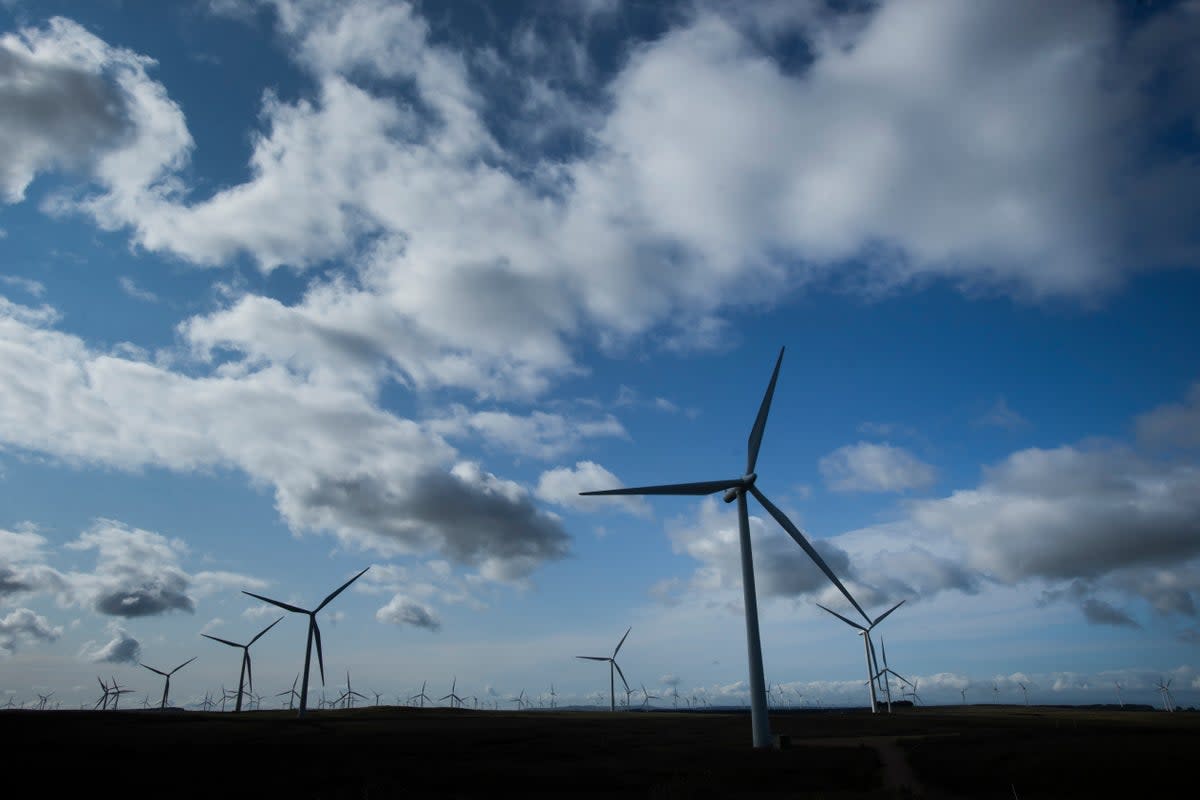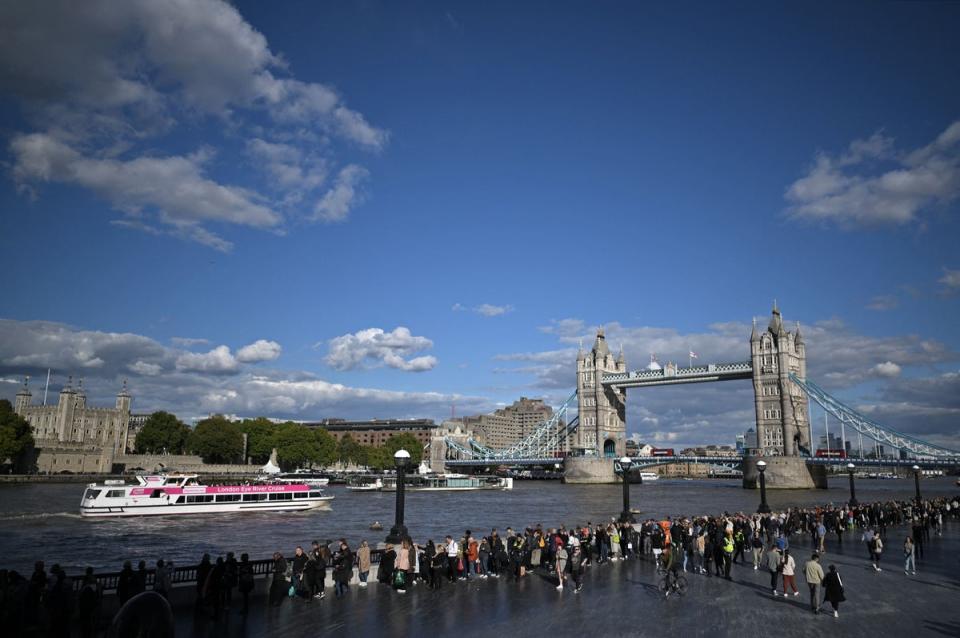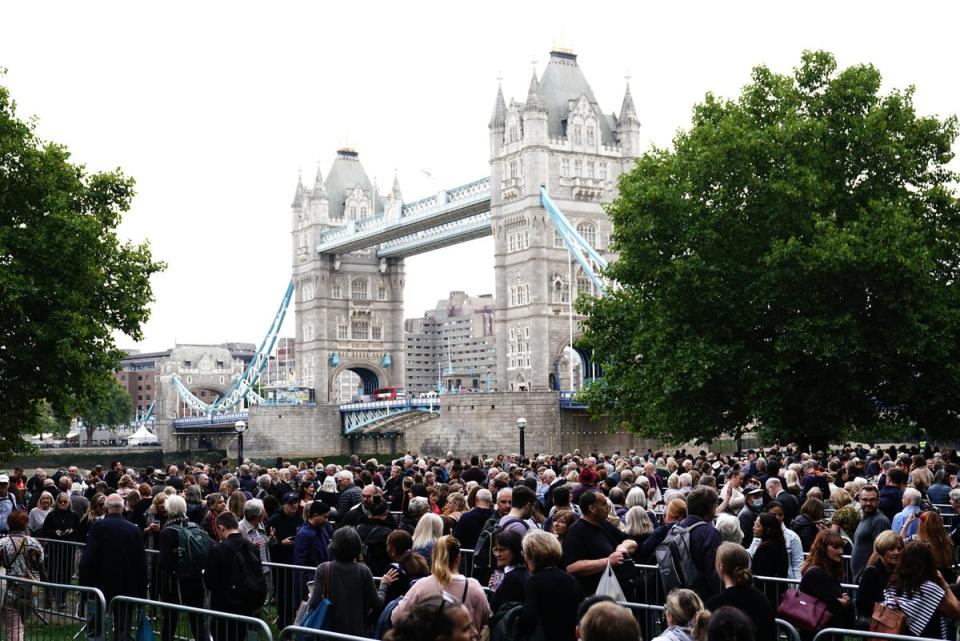Nationalised energy company could save households £4,400 in two years, analysis finds

A nationalised energy company championing renewable and nuclear sources could save British households up to £4,400 over the next two years, new analysis suggests.
As the government steps in to freeze rocketing energy bills at £2,500 a year – an intervention that will cost tens of billions of pounds – research by the Trades Union Congress (TUC) suggests that Britain’s reliance on its fully privatised energy market has left households with higher costs and dependent on foreign technology and investment.
Conversely, the TUC found, a new British state energy generation company – along the lines of EDF in France or EnBW in Germany – would see the government receive between £63bn and £122bn in revenues over the next 24 months.
This equates to between £2,250 and £4,400 per household, according to the TUC, which has proposed spending £2.85bn to nationalise five of the UK’s largest energy suppliers – British Gas, Ovo, E.On, EDF, and Scottish Power.
If previous governments had not chosen to privatise the UK’s power plants, ministers could use such money to reduce bills and accelerate the rollout of home insulation, the TUC said.
The analysis comes as new prime minister Liz Truss stands firm against a public that appears to be largely in favour of a windfall tax on the vast profits of the oil and gas giants, who are reaping the unexpected benefits of Vladimir Putin’s war in Ukraine. One YouGov poll found that three in four voters favour such a move.
“Privatisation has led to higher bills and colder homes,” said TUC general secretary Frances O’Grady. “We need a fairer, greener approach that stops energy companies using UK families like cash machines.
“French, Swedish and German families benefit from public ownership of electricity – why shouldn’t we? If we set up our own UK public energy champion, we can have lower bills, free home improvements to reduce our energy needs, and a safer climate for future generations.”
The TUC argued that public ownership of energy firms has enabled European countries to keep prices down and reinvest in communities.
While France faces a bill of some £8.5bn to nationalise the remaining 16 per cent of EDF, Germany has also moved to nationalise its largest gas importer, Uniper, at a cost of £7bn, in a bid to ease the crisis of soaring household bills caused in large part by Mr Putin’s war.
Meanwhile, the European Union this week took aim at the “abnormally high profits” of energy companies, as it announced a windfall tax that it hopes will raise around £121bn to help ease the burden on consumers.
UK news in pictures











In its response to the crisis, Ms Truss’s new government has announced that it will cap energy bills at £2,500 per year for the average household, with a support package chancellor Kwasi Kwarteng said would cost some £60bn in its first six months – most of which will be handed to private energy suppliers.
The government has also moved to bail out energy supplier Bulb, after dozens of firms went bust, in a move that consultancy Auxilione predicts could cost the taxpayer £4bn by April.
And in a dramatic mini-Budget on Friday, Mr Kwarteng announced a further £45bn-worth of tax cuts, mostly for mega-earners, effectively betting the UK economy in an all-out gamble driven by the Conservative ideology of “trickle-down” economics. The move prompted the TUC to refer to the chancellor as “Robin Hood in reverse”.
Ms Truss’s new government has also lifted the moratorium on fracking, and has given the green light to expansion of oil and gas extraction in the North Sea, which Scottish secretary Alister Jack said could lead to more than 100 new licences being granted and more than 70,000 jobs supported in Scotland.
In its analysis, however, the TUC argued that climate action could create more than a million new jobs, calling for a “major transformation” of the UK’s energy system to counter the “real risk that the climate transition will leave working people behind”.
Arguing that a nationalised energy generation company could help the UK to ensure a “just transition” from fossil fuels to renewables as it seeks to avert climate disaster, the TUC suggested that a British “public energy champion” could build and control between 27GW and 77GW of new clean energy generation by 2040 if it were able to match the scale of the rollout seen in France, Germany and Sweden.
According to the TUC, this would see the UK’s current capacity for generating renewable energy multiply by one to three times, and could represent between 9.5 and 27 per cent of the nation’s total electricity needs by 2050, in line with the forecasts for future usage carried out by the government’s independent advisory body.
The Green Party told The Guardian, which first reported the analysis, that it supported the TUC’s findings. Co-leader Adrian Ramsay said: “It’s important there’s more government ownership across all parts of the energy market so that we can ensure a rapid transition from fossil fuels to renewables and secure our energy needs for the future.
“We do also need to support a diverse range of ownership models for energy generators and suppliers, including local community, cooperatives and municipal, that are close to the people they serve and can innovate.”

 Yahoo News
Yahoo News 
